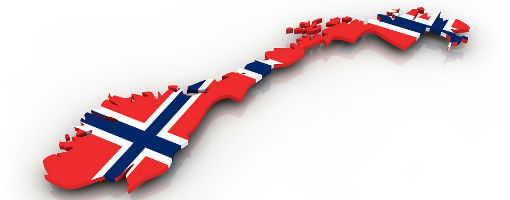Finnish earnings-related pension provider Varma reported a 1.7 per cent investment return for the first six months of 2025.
Its interim results revealed that the value of its investments rose to €64.9bn from €64.4bn at the start of the year. Its solvency ratio stood at 134 per cent at the end of June, a slight change from the beginning of the year when it was 134.6 per cent.
Varma manages the occupational pensions of around 993,000 private sector employees. In 2024, it collected €6.7bn in premiums and paid out €7.5bn in pensions.
During the period, equities returned 1 per cent, fixed income 2.8 per cent, real estate 1.2 per cent and hedge funds 3.2 per cent. Indeed, all asset classes in Varma’s portfolio delivered a positive result for the period.
Varma CEO Risto Murto said returns were dampened by the weaker dollar, while markets remained unsettled by tariff concerns and geopolitical risks. Looking forward, he believes the impact of trade policy and rising tariffs could still “surprise in the autumn”.
“Rising tariffs and the associated uncertainties are inevitably bad news for Finland's export-driven economy,” he said.
On a more positive note, Varma executive vice president, Markus Aho, described the performance of the Helsinki stock exchange as the “bright spot” of the early part of the year.
During the first half, Varma also revised its responsible investment principles for defence-related holdings.
The updated guidelines will allow the provider to invest in new opportunities within the sector, while continuing to exclude companies manufacturing controversial weapons if they are not headquartered in NATO countries, Switzerland or the IP-4 group of Japan, South Korea, Australia and New Zealand.
As part of its stewardship activity, Varma participated in more than 400 annual general meetings in the first half of the year. At these, it supported proposals calling for greater transparency around political donations, including backing mandatory reporting in US companies, and also resolutions on the ethical use of artificial intelligence.
On the pensions side, the TyEL payroll of Varma’s customer companies increased by 3.9 per cent year-on-year in January to June, despite signs of a weaker economic outlook and rising unemployment. The provider received a net transfer of €73m in TyEL premium income from other insurers, while new sales of pension insurance reached €39m.
New disability pensions fell across most age groups compared to the previous year, apart from the 45–54 age bracket. The highest number of new awards was granted to people aged 55–59 and those over 60. Among under-35s, mental health was the leading cause, accounting for almost a third (31 per cent) of new pensions.
Applications for partial old-age pensions halved over the same period. Varma said the decline was linked to the fact that no new age group will reach the minimum eligibility age this year.
Latest News
-
UK BPA market set to exceed £50bn in 2026 amid ‘strategic crossroads’ for trustees
-
36% of Finnish retirees think older workers are seen as a burden, Elo survey
-
41% of young Dutch adults say saving is most important financial resolution
-
Dutch pension funds mark key milestones in transition to new system
-
BNP Paribas brings AXA IM under single asset management platform following acquisition
-
Denmark’s Sampension acquires stakes in EU wind farms in two separate investments
Podcast: Stepping up to the challenge

In the latest European Pensions podcast, Natalie Tuck talks to PensionsEurope chair, Jerry Moriarty, about his new role and the European pension policy agenda
Podcast: The benefits of private equity in pension fund portfolios

The outbreak of the Covid-19 pandemic, in which stock markets have seen increased volatility, combined with global low interest rates has led to alternative asset classes rising in popularity. Private equity is one of the top runners in this category, and for good reason.
In this podcast, Munich Private Equity Partners Managing Director, Christopher Bär, chats to European Pensions Editor, Natalie Tuck, about the benefits private equity investments can bring to pension fund portfolios and the best approach to take.
In this podcast, Munich Private Equity Partners Managing Director, Christopher Bär, chats to European Pensions Editor, Natalie Tuck, about the benefits private equity investments can bring to pension fund portfolios and the best approach to take.
Mitigating risk
BNP Paribas Asset Management’s head of pension solutions, Julien Halfon, discusses equity hedging with Laura Blows
© 2019 Perspective Publishing Privacy & Cookies








Recent Stories